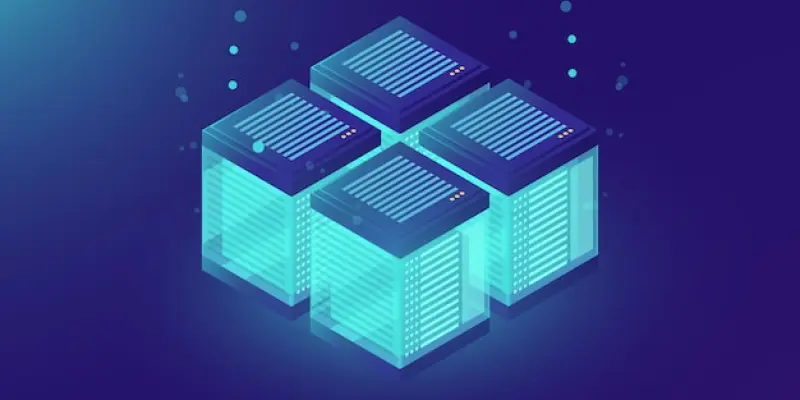In today’s digital age, where data generation is skyrocketing, the need for innovative and long-lasting storage solutions has become more urgent than ever. A German startup named Cerabyte is spearheading this transformation by developing ceramic glass for data storage. This pioneering technology promises unprecedented durability, potentially preserving data for over 5,000 years. The approach involves inscribing data onto an ultra-thin ceramic layer set on a glass substrate using advanced femtosecond laser technology. This method is not only cost-effective but also aims to revolutionize the storage landscape by enabling vast data preservation in compact formats with chips that can hold up to 1 GB per side. The implications for industries reliant on extensive archival storage are immense as they look to mitigate the issues associated with current storage modalities that degrade over time.
The Strength of Ceramic Glass Storage
Exploring Durability
Ceramic glass storage has undergone rigorous tests to ascertain its resilience to harsh environments, setting it apart as a formidable candidate for long-term data preservation. To demonstrate its strength, experimental trials subjected the storage medium to extreme conditions, including exposure to boiling salt water and temperatures as high as 250°C. Astonishingly, it retained complete data integrity, showcasing its suitability for industries reliant on robust archival storage. This development is poised to disrupt traditional storage methods such as magnetic tapes and optical discs, which are notorious for their vulnerability over time. By offering enduring storage solutions amid the growing data demands, ceramic glass addresses critical concerns around data degradation, paving the way for enhanced security and reliability. As such, industries seeking sustainable storage options are taking keen interest in this technological breakthrough.
Advantages in Cold Storage
The concept of “cold storage” is particularly aligned with ceramic glass’s capabilities, offering a sustainable alternative that promises both longevity and performance. Unlike typical storage devices that require periodic data migrations and maintenance, ceramic glass storage remains steadfast, effectively eliminating these burdens. By leveraging its inherent durability, organizations can alleviate concerns regarding data loss and continuous upkeep. Furthermore, as data continues to grow at an exponential rate, the financial and logistical implications of maintaining vast datasets have become daunting. Ceramic glass storage presents a compelling solution by offering enduring data retention, reducing both costs and efforts associated with traditional storage infrastructure. This transformation signifies a pivotal shift towards eco-friendly and reliable storage solutions, guiding industries toward more efficient and sustainable practices.
Economic Disruption and Future Prospects
Cerabyte’s Economic Ambitions
Cerabyte is set to transform the economic dynamics of archival storage with a bold vision to reduce costs dramatically while enhancing efficiency. By 2030, the company plans to offer ceramic glass storage solutions priced as low as $1 per terabyte. Such an initiative marks a notable departure from current cost structures, promising substantial savings for enterprises inundated with data management challenges. Through innovative solutions, including glass slides and CeraTape, Cerabyte aims to drastically lower expenses associated with data storage, while ensuring uninterrupted data integrity across vast archival networks. This cost-effective approach signifies potential growth for sectors that are heavily burdened by ever-evolving data storage requirements, assisting them in navigating complex landscapes with renewed fiscal prudence and strategic foresight.
The Shift Towards Eco-Friendly Solutions
Beyond economic gains, ceramic glass storage reflects broader trends towards sustainable technologies that align with shifting industry and consumer priorities. By championing eco-friendly and durable alternatives, Cerabyte is addressing urgent concerns regarding technological wastage and resource utilization. The potential environmental impact of transitioning to ceramic glass-based storage is profound, offering reduced carbon footprints and minimized ecological disruptions. As industries seek to minimize their environmental influence, integrating ceramic glass storage solutions presents an attractive avenue for achieving ecological balance. By providing superior and sustainable options, Cerabyte is fostering a culture of responsibility and innovation, encouraging enterprises to embrace environmentally conscious technologies while securing future data preservation needs.
Looking Forward
As data volumes continue to expand at unprecedented rates, businesses and tech innovators must remain vigilant and forward-thinking in developing robust storage solutions. Ceramic glass technology, with its exceptional durability and cost-effectiveness, offers promising prospects for transforming data storage paradigms. The strides undertaken by Cerabyte not only promise improved data integrity and longevity but also underscore the importance of aligning technological advancements with sustainable practices. Continued exploration of these pioneering solutions will likely drive industry-wide shifts, fostering opportunities for large-scale integration and adoption. Embracing these next-generation storage methods represents a critical step toward a more secure and environmentally responsible future in data management, ensuring continued evolution amidst the digital revolution.

